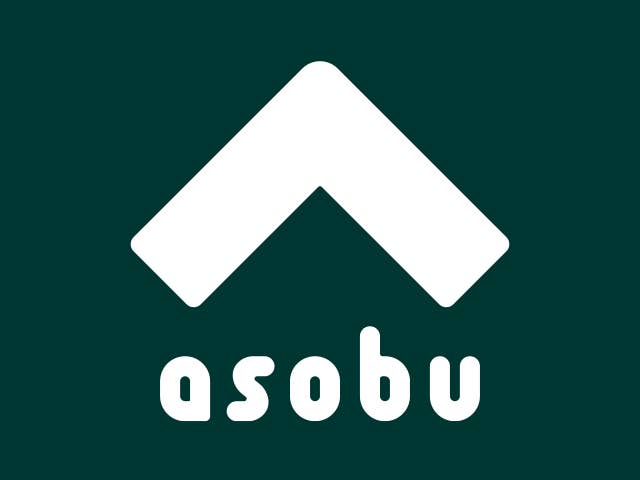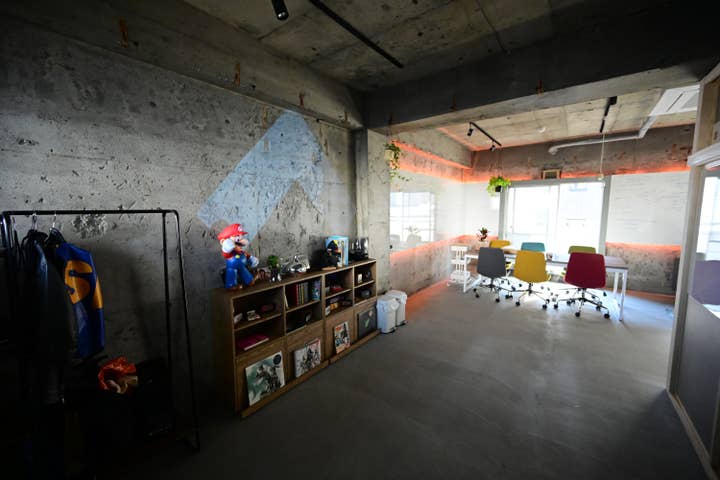Asobu: Putting Japan's indies on the international map
Co-founder Mark MacDonald discusses why Japan didn't have an indie boom, and Asobu's plans to kickstart one anyway
For a five-year period spanning the end of the 2000s and the start of the 2010s, the Japanese games industry was perceived to be in trouble.
While the veracity of that claim was at least debatable, it wasn't an example of the media's habit for proclaiming things "dead" before their time: from console gaming to the PC market, the list of bad calls in the press is long and less than distinguished. With Japan, however, it was different; the criticisms and calls for change were coming from within, from some of the most distinguished and experienced figures the country's industry had ever produced.
That perception has certainly changed. Nintendo reemerged as an industry leader, Hideo Kojima's wilderness period ended, Final Fantasy returned to prominence, and games like Dark Souls and Nier: Automata redefined the parameters of entire genres. On the AAA level, at least, Japan is as much a force now as it has been in two decades.
"When you look at the giant industry that 'indies' has become, you're seeing games out of the US and Europe"
The world of indie development is another matter. While bootstrapped companies from small teams completely reshaped the markets in Europe, North America and beyond starting in the late 2000s, there was no comparable revolution in Japan. According to Mark MacDonald, senior vice president of production at the Tokyo-based developer Enhance, that represents a missed opportunity -- but an opportunity that's still there for the taking.
"I'm an American, and I've lived here for ten years, and that's a double-edged sword," he says, speaking to GamesIndustry.biz." On the one hand, it can be said 'you're critical of Japan and you're not from here.' In another way it affords me a little bit of distance to actually say this stuff."
The reason MacDonald is speaking on the subject at all is Asobu, a new organisation he co-founded with Makers Fund's Zen Chao, documentary filmmaker Anne Ferrero, and a collective of Japan's more prominent independent developers -- including Downwell creator Ojiro Fumoto and Chibi Robo director Kenichi Nishi. Asobu exists in the first place, he says, because of deep-rooted "cultural and historical" factors that influence Japan's entire relationship with creative independence.

"There's definitely exceptions to everything I say," he admits. "There are some very bright spots with Japanese indies, but by and large, when you look at the giant industry that 'indies' has become, you're seeing games out of the US and Europe... With a couple of exceptions, it's usually the major Japanese studios that are still making an impact. Why?
"You have this creator base, you have the history here... On the face of it, you have the same conditions for an indie revolution to happen the way it did in the West, circa the mid-2000s. You had AAA developers that might feel stymied here, you had these new ways of getting the games out, but for all of these cultural and other reasons it just didn't happen.
"Those creators are there... They have the ideas, but they're not breaking out to the same degree that they do in the West."
Among other activities, the team behind Asobu spent a year talking to developers and publishers about the reasons for the comparative weakness of the Japanese indie scene. In doing so, they found two factors were cited most often.
"You have people at Nintendo who've made ten amazing games, and you'll never know their names. They'll never start their own thing"
The first is tied to a professional culture based on loyalty to a single company -- partly embodied in the cultural stereotype of the salaryman. For decades, the most widely taken path by Japanese graduates was to get a job at a single company and remain there for their entire careers.
"Your job might change ten or 20 times over the course of your career, but you work for the company," MacDonald says. "It's worked really well for Japan and it became part of the culture, but the idea of bouncing around jobs because you're not fulfilled creatively, or the idea of breaking off on your own, and that entrepreneurial spirit -- the romanticism behind that exists in Japan only once you become a multi-million dollar success.
"It's why you have people at Nintendo who've made ten amazing games and you'll never know their names. They'll never start their own thing."
The other major issue was the prominence of PC games -- or rather, their lack of the same. Consoles played a significant role in establishing indies as a commercial force, but MacDonald argues that the true bedrock was Steam -- a more accessible platform than Xbox or PlayStation even when Valve curated what was allowed on the store.

"In Japan, PC isn't as big as it is in the West," MacDonald continues. "Only recently, when the consoles took down a lot of the hurdles -- over the last generation, but really just the last three or four years -- has that changed to being a viable path for [building a career] in Japan."
MacDonald adds: "But it's happening so slowly, and we want to accelerate it. We want to push it."
Asobu has already started to catalyse that change by building a network of Japanese indie developers over the last year -- partly around its free shared workspace in Tokyo's famous Shibuya district, and partly around a server on Discord. The regular communication this encourages allows members to share experience and information, and to build confidence as a result.
"There's something to be said for being pushed into the swimming pool and having to swim. That's 100% where we're at"
"I saw this happen in the West," MacDonald recalls. "Every developer had a friend, or a friend's friend, who worked on Bastion, for example. They had a success story. Mentally, a huge thing happens there... It becomes so much more real."
It also trialled a series of event concepts at its premises in Shibuya, including talks from both local and international developers, user tests where members received feedback on new builds, and game jams. When COVID-19 made the use of its workspace impossible, it moved those concepts online, starting a monthly meetup called "The Indie Collection" and preparing a Nintendo Direct-style indie game showcase that will be broadcast on Tuesday September 21 -- two days before the start of the Tokyo Game Show.
"At our best, we'll be serving the creators... and doing public outreach to players, and [raising] awareness," MacDonald says. "It sounds silly, but that wasn't really a thing until recently even in the West."
In a sense, then, the COVID-19 pandemic has been less destructive for Asobu's mission than MacDonald first thought. Initially, its plans were entirely based around physical locations, be that its own workspace or major events like Tokyo Game Show and BitSummit. However, the necessity of finding digital alternatives allowed it to reach beyond major hubs like Tokyo and Kyoto and serve an even bigger community.
"It was always a goal to reach beyond Tokyo and throughout Japan," MacDonald says. "But [COVID-19] was a huge kick in the pants, and we had to rethink everything, and in a lot of ways we're starting from zero right now -- but so is everybody.
"It's actually accelerated a ton of things that we wouldn't have had until year two, three or four. It forced us to think in a way that could help everybody... There's something to be said for being pushed into the swimming pool and having to swim. That's 100% where we're at."
"We do want to do both [physical and digital activities]... but we have a template now to have a voice on a stage larger than just Tokyo -- definitely Japan, and then also to fans and potential fans outside of it. Hopefully, Asobu is going to be the best of both worlds."









